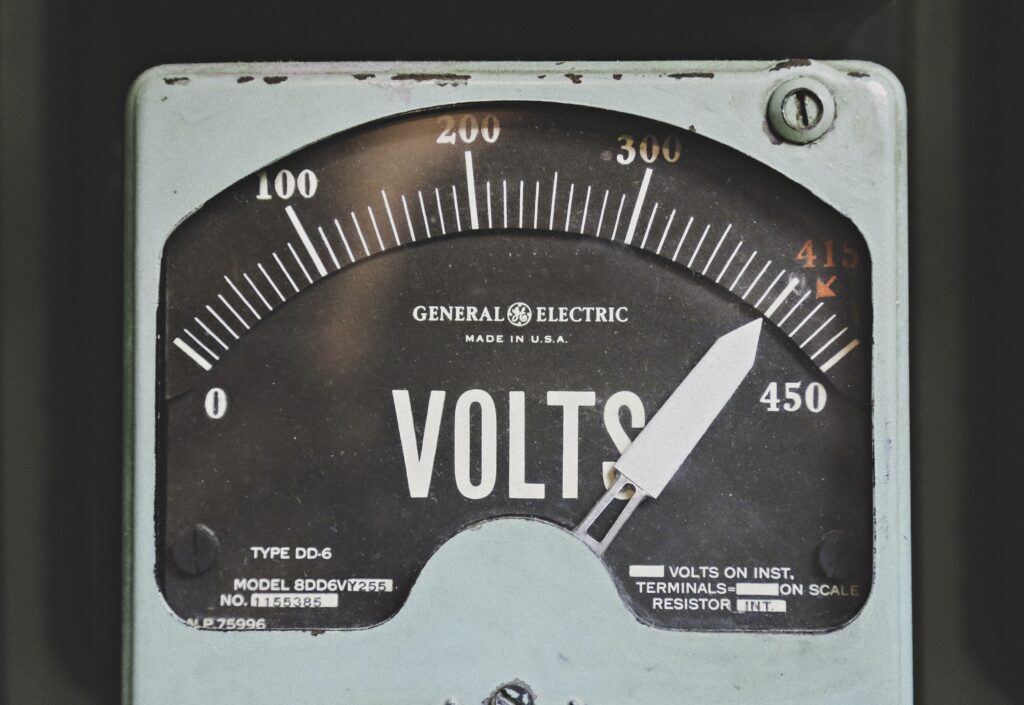Navigating the world of electric scooters can be as complex as mastering the art of balance. As these eco-friendly modes of transportation gain popularity, the laws surrounding their use become more convoluted. Fret not, your questions – especially one like “Where are electric scooters legal?” – will be answered in this enlightening discourse. Discover the nuances of regulations in different countries, states, and cities, as the legality of electric scooters often varies widely. So, fasten your helmet and prepare to journey through this comprehensive guide on electric scooter laws.

Understanding the Legality of Electric Scooters Worldwide
The rise of electric scooters as convenient, environmentally friendly modes of transportation has sparked lively debates about their legality. Let’s embark on a worldwide journey to understand the legal status of these modern modes of transport.
Definition of an Electric Scooter
Before we dive in, it’s important to clarify what we mean by an electric scooter. So, when you hear “electric scooter”, you should envision a small platform with two or more wheels powered by an electric motor. The rider stands on the platform and steers the vehicle with a handlebar system. Note that electric kick scooters are included in this category.
Grounds for Legality or Illegality
Determining the legality of electric scooters across various jurisdictions can be tricky. Now, you might wonder, why is this even a debate? Well, the factors that contribute to the legality or illegality of electric scooters usually hinges on safety concerns, street regulations, and how authorities perceive their impact on pedestrian and traffic flow. Therefore, regulations may differ greatly across countries, and even among cities within the same country.
Global Trends Towards Electric Scooters
As you’ll soon discover, electric scooters are gaining traction globally as an alternative to traditional transportation solutions. They offer potential solutions for last-mile transportation problems, decrease carbon emissions, and integrate well with the growing trend of shared mobility services. Despite this warming trend, there is still significant variance in their legal status worldwide.
Electric Scooter Laws in North America
North America, known for promoting green and innovative transportation solutions, has met the arrival of electric scooters with a mixed bag of regulations.
USA Electric Scooter Laws
In the USA, electric scooter laws vary significantly from state to state and even from city to city. Some cities openly allow their use, while others have implemented outright bans. For example, in California, electric scooters are allowed on bike paths, roads, and sidewalks. However, riders must wear a helmet and cannot exceed 15 mph. Conversely, New York City had imposed an outright ban until recently. The challenge here is to understand the specific laws pertinent to your locality.
Canada Electric Scooter Laws
Cousins to the north, Canadians face similarly varied regulations. Some provinces are very open to the idea of electric scooters with regulations in place allowing their use on roads and bike paths. However, some provinces still prohibit their use altogether r on the grounds of safety for both the riders and pedestrians.
Last Mile Solutions: The North American Perspective
While there are formidable regulations, electric scooters are still viewed as an effective last-mile solution by North Americans. They complement public transport by providing a quick and convenient option to travel short distances, thus reducing the reliance on cars for shorter commutes.
Electric Scooter Laws in Europe
Across the pond, Europe paints an uneven picture of electric scooter laws that range from full acceptance to outright bans.
UK and Ireland Electric Scooter Laws
Curiously, the UK, which is known for its progressive transportation policies, has a blanket ban on electric scooters on public roads, pavements, and cycle lanes. On the other hand, Ireland has a somewhat relaxed approach, allowing electric scooters but lacking clear legislation to regulate them. Needless to say, the laws are still in flux and might change with evolving perceptions and needs.
France and Germany Electric Scooter Laws
France allows electric scooters on its cycle paths and roads, but not on pavements. Germany also allows them but has strict rules acting as speed breakers. For instance, riders should be at least 14 years old, scooters must not exceed 20 km/h, and they must be equipped with lights and a bell.
Nordic Countries and Electric Scooters
Nordic countries, known for their consideration towards eco-friendly alternatives, have different laws. For instance, Denmark allows electric scooters on bike lanes and roads, with a speed limit of 20 km/h. Finland also allows them but has a 15 km/h speed limit. Sweden has a more relaxed approach with a 20 km/h speed limit and no license requirements.
Southern Europe and the Electric Scooter Trend
In Southern Europe, countries like Spain and Italy have embraced electric scooters, with Spanish legislation classifying them as vehicles subject to the same road rules as bikes. Italy, while allowing them on roads, pavements, and cycle paths, has set a 6 km/h speed limit on pavements.
Electric Scooter Laws in Asia
Asia’s booming population presents a vast potential market for electric scooters, calling for a closer look at the legal landscape.
China and Electric Scooter Regulations
China, the birthplace of many electric scooters, ironically keeps tight reins on them. Strict rules govern power output, maximum speed, and you can only ride them on bike lanes.
Japan and South Korea’s Stance on Electric Scooters
Japan has stringent laws that often categorize electric scooters as motor vehicles, requiring licenses and insurance. In South Korea, they are legal but subject to several restrictive regulations, including registration, a speed limit of 15 km/h, and mandatory helmet usage.
India and South East Asia’s Approach Towards Electric Scooters
In contrast, India and Southeast Asia, buoyed by pressures of urbanization, pollution, and traffic congestion, are more receptive- albeit with strict safety laws. For example, in India, scooters with a top speed of less than 25 km/h are legal and do not require a license or registration.

Electric Scooter Laws in Australia and New Zealand
Down under, the legality of electric scooters is a hot topic of discussion.
Electric Scooter Regulations in Australia
In Australia, the laws vary, with Queensland being the most permissive, allowing electric scooters on both streets and footpaths. However, other states are still in the evaluation phase, contemplating safety measures before full acceptance.
New Zealand’s Policies on Electric Scooters
New Zealand, on the other hand, permits electric scooters without any speed limit or helmet law. However, they must be ridden on the road, not pavements, and during the day they must be ridden as far left as practical.
Electric Scooter Laws in South America
In South America, the scenario is as varied as the continent itself.
Brazil and Argentina’s Approach to Electric Scooters
In Brazil, local traffic authorities regulate electric scooter use, and guidelines often include age limits, mandatory helmet usage, and riding only on bike lanes or roads. Argentina similarly regulates the use of electric scooters, along with mandatory helmet usage.
Other South American Countries and Electric Scooter Laws
The legal framework in other South American countries is mostly under development, with some like Chile and Peru, showing initial openness to the idea but seeking to establish regulations that safeguard pedestrians and riders alike.

Electric Scooter Laws in Africa
In Africa, the rise of the electric scooter is relatively fresh, and legislation is still under development across the continent.
South Africa and Electric Scooters
South Africa has yet to introduce any official legislation regarding electric scooters, with the matter still up for discussion among lawmakers. The lack of regulations, however, does not boot electric scooters off the road, and they are quite popular, especially among teenagers and tourists.
North Africa and the Electric Scooter Trend
In North Africa, the trend is not as popular, but where it does exist – such as in Egypt – it’s largely unregulated.
East and West Africa and Electric Scooters
East and West Africa, however, lag in the electric scooter trend. In places where the electric scooter is present, such as Nigeria and Kenya, it’s often categorized with motorcycles, making them subject to related local traffic laws and regulations.
Electric Scooter Laws in the Middle East
Here’s what’s happening in the Middle East:
United Arab Emirates and Electric Scooters
In the United Arab Emirates, the popularity of electric scooters is growing, particularly in Dubai, where guidelines are in place to ensure safe use. Ride-sharing electric scooter services are operational, and the laws are continually evolving as this mode of transport becomes more commonplace.
Saudi Arabia and Electric Scooters
In Saudi Arabia, electric scooters are legal, and the Saudi Arabian Standards Organization provides regulations outlining safety measures, including speeds and helmet requirements.
Other Middle Eastern Countries and Electric Scooter Laws
Other Middle Eastern countries maintain varying degrees of openness and regulations regarding electric scooters. Similarly, they often fall under existing laws that govern small motor vehicles or bicycles.
The Role of Electric Scooter Companies
As electric scooter companies continue to boisterously break into markets across the globe, they play an increasingly critical role in shaping laws and public perceptions about this mode of transport.
Regulatory Battles Faced by Companies
Electric scooter companies often face challenges with regulations that vary not just by country but, in many instances, by towns and cities within a country. These challenges often arise due to safety concerns, congestion issues, and the lack of existing regulations ready to cope with this new form of transport.
How Companies are Lobbying for More Favorable Laws
Scooter companies like Bird, Lime, and Spin work closely with local authorities to promote more favorable laws. They argue that electric scooters are not only eco-friendly but also key to solving the last mile problem, reducing traffic jams, and improving urban mobility.
Case Study: Bird, Lime, and Spin
Companies like Bird, Lime, and Spin have been at the forefront of this transportation revolution, providing services in a multitude of countries. Their strategies often involve launching in a city first and then collaborating with local authorities to establish rules that work for everyone.
Looking Towards the Future of Electric Scooter Laws
We can expect different countries and jurisdictions to continue wrestling with how best to regulate electric scooters. The future will likely be shaped by advancements in technology, shifts in urban transportation needs, and new studies into the impacts of these devices.
Possible Changes in Electric Scooter Laws
As more people use electric scooters, laws may be refined or added to ensure safety and efficient traffic flow. This might include specifications on speed limits, mandatory use of safety gear, specifications on where these devices can be used, and perhaps the introduction of licenses like we have for cars.
How Technology May Impact Future Laws and Regulations
Advancements in technology may prompt changes in regulations, too. For instance, as scooters become smarter and self-navigating scooters come into play, this might necessitate new laws and regulations.
The Future of Urban Mobility and Electric Scooters
Despite the challenges and debates, electric scooters are here to stay. It’s clear they have a significant role to play in the future of urban mobility as we collectively strive for more sustainable and congestion-free cities. As the dialogue between lawmakers, companies, and the public continues, we can hope to see more jurisdictions adopting a balanced, forward-thinking approach to electric scooter laws in the coming years.




